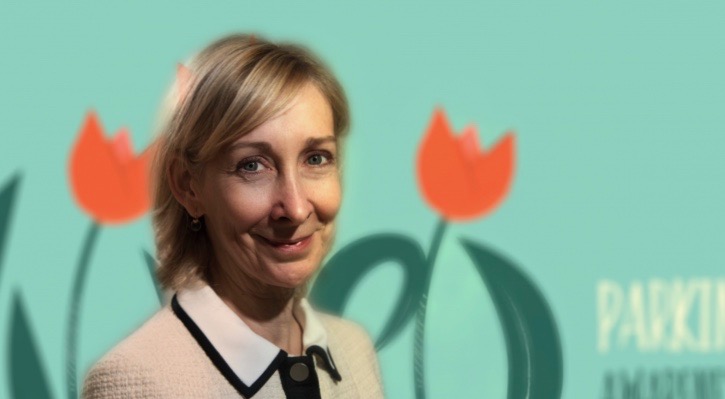
Dr. Anne-Louise Lafontaine, Head of Neurology at the MUHC and Director of The Neuro’s Movement Disorders Clinic, is a tireless advocate for Parkinson’s patients. Dr. Lafontaine built the clinic from the ground up because she saw a crucial need for patients with Parkinson’s disease to have the care and support of allied health professionals. The inter-disciplinary clinic delivers outstanding patient care and is a Parkinson Foundation Centre of Excellence, one of only a few in Canada. Dr. Lafontaine is also passionate about training the next generation of health care leaders and has won multiple distinguished clinical teaching awards.
Dr. Lafontaine is profiled in ongoing NeuroXXceptional series featuring outstanding female researchers at the Montreal Neurological INstitute. Watch her video to learn more about the unexpected source of inspiration that shaped her career
What’s it like to care for a patient? What is the most important thing for you when working with a patient?
It’s a privilege to be with a patient because together, you are facing one of the greatest challenges of their lives, so they put a lot of trust and hope in you as their physician to steer them in the right direction.
I remember a young patient I took care of very early on in my career when I was a physiotherapist. He had become quadriparetic (weakness of all four limbs) after an accident diving in a pool. I remember feeling almost useless because I couldn’t make the muscles move, but the patient still relied on me for support and looked forward to my visits. I realized that caring for someone is beyond fixing them or even curing them but it’s actually being supportive of them. That has helped me to adapt to the fact that even though we deal with progressive diseases for which there may not be cures, our role in guiding and supporting patients is so important.
What have you learned from your patients with Parkinson’s disease over the years?
My patients have taught me the real meaning of dignity. What surprises me is the resilience I have witnessed in some patients who have been dealt unfairly a really devastating disease. These are the patients that teach me the most about having dignity in their suffering.
What are you most proud of?
My children! The biggest surprise was how children change your life for the positive in ways you couldn’t have even imagined. Until I had my own children, I couldn’t imagine the worry and of course, the love and the concern you have for these individuals. Now I understand they are children for life because as a parent you always want the best for them. I would say that definitely having children will be my greatest accomplishment.
As Head of Neurology at the MUHC and Director of The Neuro’s Movement Disorders Clinic – your days are intense, what do you do in your down time, how do you relax?
At the top of the list for me is sailing, which we do as a family. What I love about sailing is you are really up against the elements. I really enjoy being out there on the water in good weather but, even in bad weather, it feels great to be close to nature. A few years ago, we purchased a sailboat that sleeps four and we spend time in the summers out sailing, often going to the Thousand Islands. Since there’s no internet to distract the kids, it really gets them to be fully out in nature. There are always challenges or elements of surprise that come up while you’re on a boat, so it keeps you on your toes. It’s a really peaceful way of spending quality time with your children.
I think my kids and family also help me find solace away from work. I think the beauty of family is that you get home and it’s another world waiting for you. All your kids care about is help with homework and that they’re hungry for supper, and they want to tell you about their day. They need you, so you step up to the plate, and you forget what might have troubled you earlier on.
